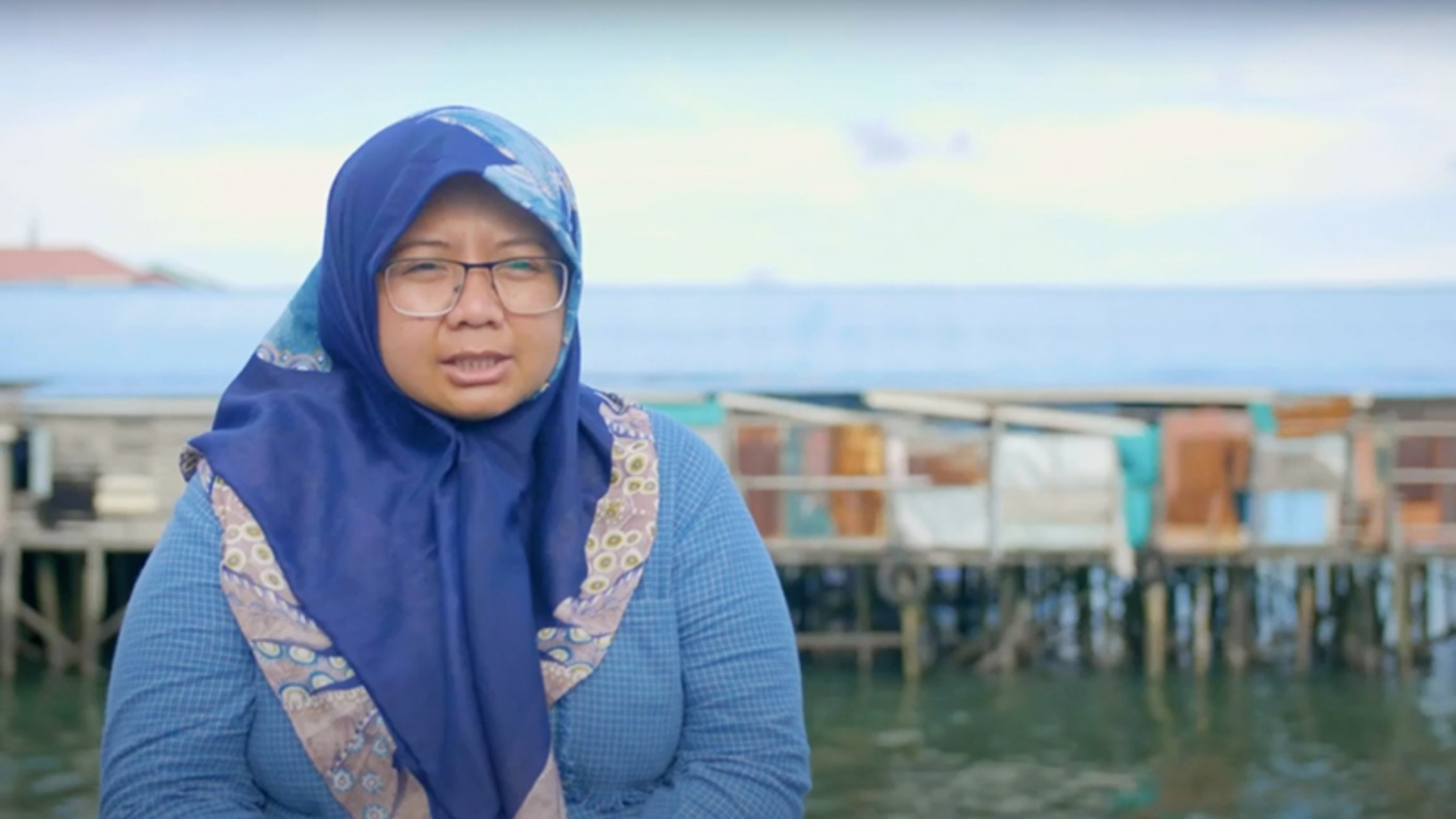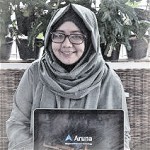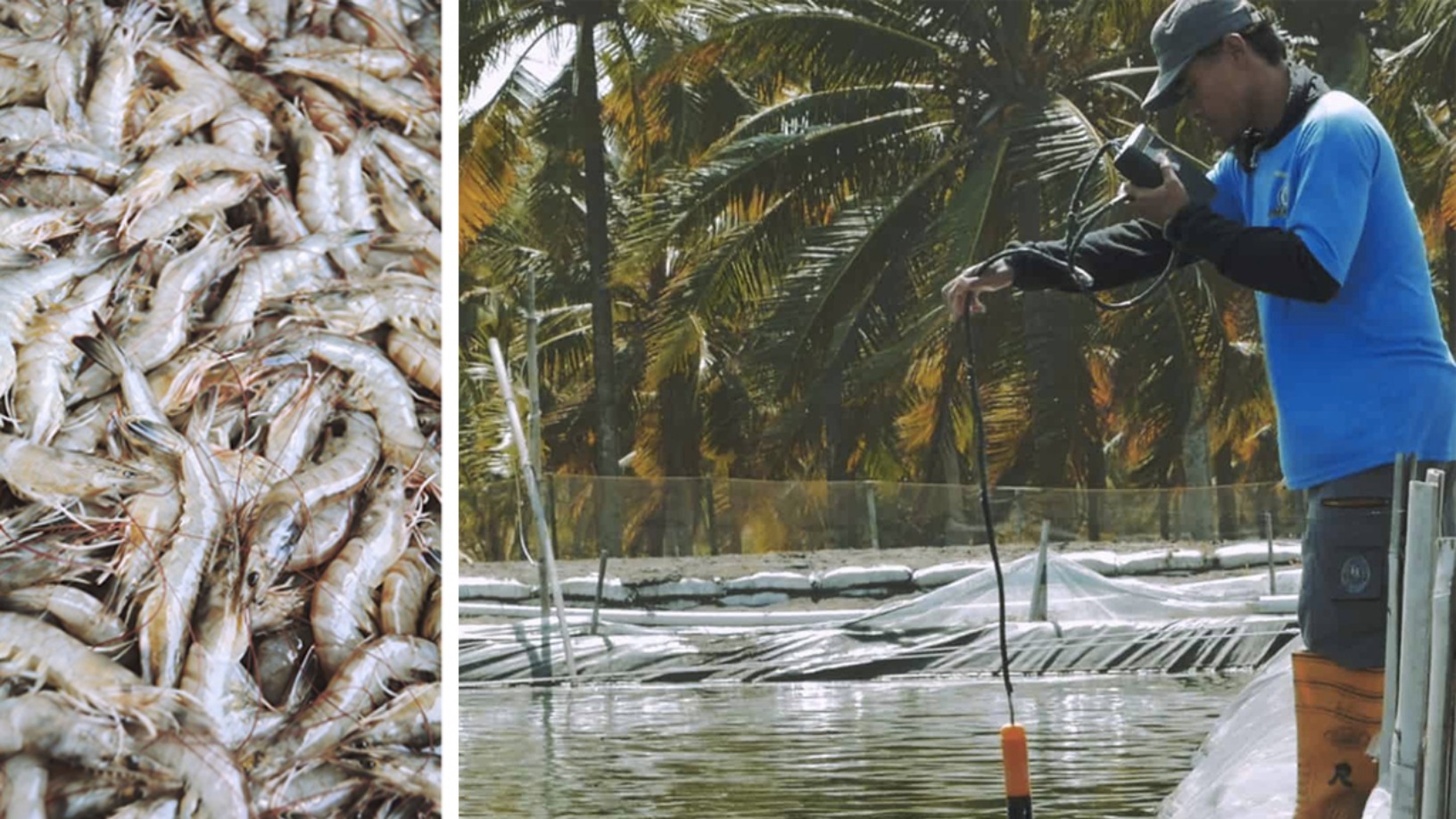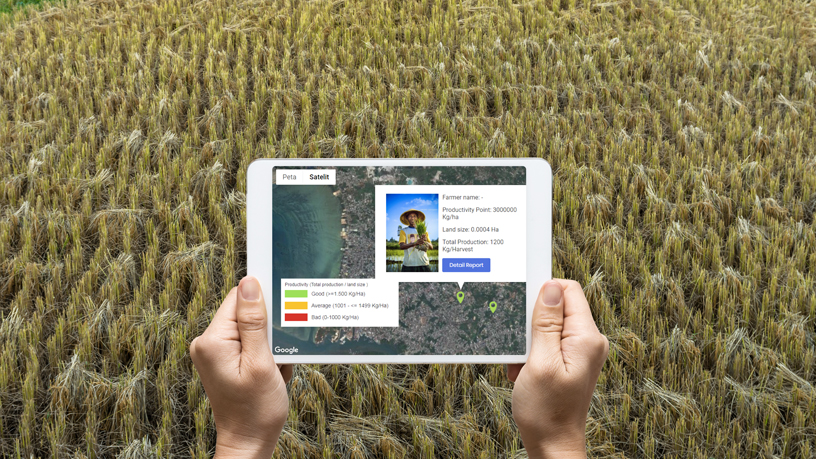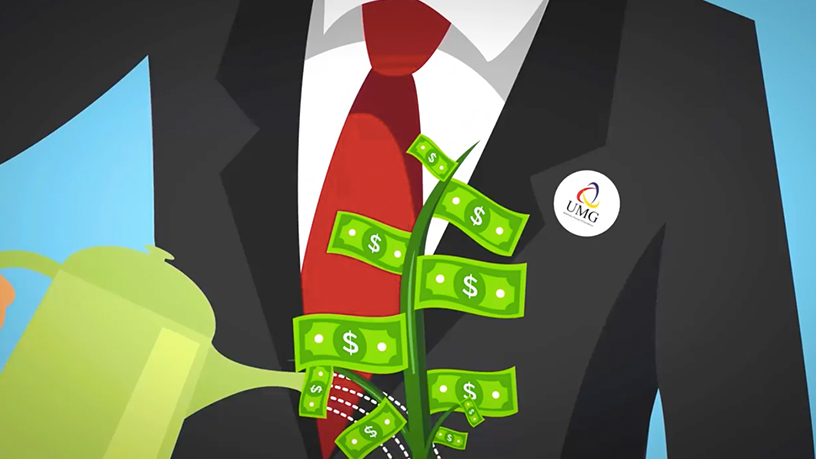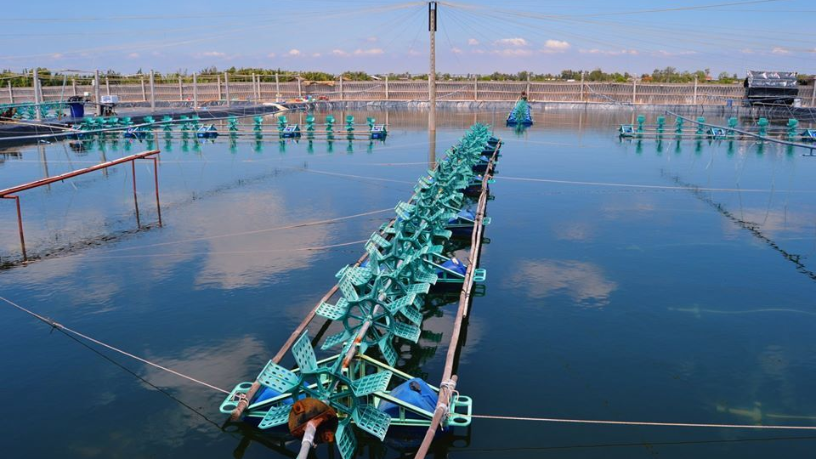Indonesia's fishing communities face some pressing problems, including a lack of financial literacy, limited access to financing and dependence on brokers and middlemen. These issues have severely limited fisherfolk's incomes, causing more people to abandon the trade.
Aruna, a startup based in Jakarta, is attempting to solve this problem by connecting fishing villages with enterprise-scale buyers through an e-commerce platform. The company currently works with 15 fishing communities in Indonesia, with a focus on fishing villages outside of Java.
Their approach, however, does not start with tech. Rather, it focuses on building stronger communities, equipping fishermen with financial skills and empowering their families with shore-based jobs.
We interviewed the startup's co-founder and Director General Utari Octavianty late last year to learn more about Aruna's ground-up approach to empowering Indonesia's fishing communities and the challenges they've faced along the way.
The following has been edited for length and clarity.
For more in-depth research and insights about Indonesian agritech, the full Indonesia Agritech Report 2020 by CompassList is now available online to all readers.
How was Aruna founded?
Aruna was established in 2016 to get access to the export market and we focused on finding buyers from the start. We formed fisher collectives to organize the fisherfolk and to collect the products. The first one was in Balikpapan near my own home.
Farid [Naufal Aslam], Indraka [Fadhlillah] and I were classmates at university. We wanted to make a business that was related to our own daily lives. It happened that Indraka and I lived near the coast, while Farid was really into technology. The idea was that we wanted to help coastal people fisherfolk gain better access to markets so they could sell their catch.
According to media reports, your first product was Pasarlaut.com.
Pasarlaut is one of our early products. At the time, we focused on helping fisherfolk gain access to the local market and sell their catch at small scales. However, we found along the way that we couldn't implement that solution the way we wanted due to lack of infrastructure. We decided to build Aruna to fulfil a greater mission: to help market fresh fish directly to the export market. Pasarlaut is still active, selling to hotels and restaurants in Jakarta.
We transferred Pasarlaut to a different management and they run as a separate company, but their office is in the same rented building. Aruna and Pasarlaut are sister companies, as Aruna supplies Pasarlaut with the fish they sell.
More specifically to Aruna, how does Aruna help fisherfolk?
We focus on collecting data from the fisherfolk in each community on the methods they use to catch the fish, what they catch and how much they catch. Using that data, we can connect them to prospective buyers.
So the buyers want to buy certain types of fish, and Aruna's job is to find the fishermen that catch that type of fish. What's next?
The core of our activity is building fisherfolk collectives in fishing villages. We teach them how to catch fish with methods that comply with international standards from buyers. We teach them how to use technology, too, and we connect them to the end-buyers, such as restaurants in Malaysia and Singapore, and food factories in Vietnam, Korea and the US. We connect them through the Aruna app.
How does Aruna monetize its business?
We're a fish trading business, so we can take some margins from there. But we're focusing on impact and on how we can help fishermen earn more income, so we have to balance that with our own needs as a business. Another source of revenue is data subscription. Our buyers need data from us. There are now many strict rules regarding fishery and fair trading; in the US, buyers want to know who caught the fish. We have that data, which is attractive to international buyers.
Aruna has said that it can help fishermen get prices that are up to 20% higher than their usual price, while buyers can get 15% savings...
We need to clarify this. Fishermen can get better prices, but the bigger benefit is that they get a more sustainable source of income. Fishermen can sometimes get better prices selling to existing local markets, but it's not sustainable because the demand might not be there the next day. With Aruna, there's always some demand for their products. That is what helps them earn more in a year.
On the buyers' side, they can occasionally get cheaper prices buying from existing stores; sometimes our prices are actually more expensive. However, we can guarantee that the products will come from our fishermen, who comply with certain standards and rules.
You mentioned that the fishermen don't always get better prices selling to existing markets, so can you tell us how much their income has improved since working with you?
Most of the fishing households in our communities have experienced a threefold increase in their income, with some extreme cases seeing a 12-fold increase in income. They were working off-and-on as fishermen because the demand for their catch fluctuates quite a lot in the local markets. With a more constant source of demand, they go to sea very often: once every two days.
In our communities, we also empower their families. The wives of the fishermen can work with us to process the catch before packing and exporting. We pay them a wage so they can contribute to their family's income, too.
Can you share with us how much fish/seafood has been sold via Aruna?
Aruna is focusing on high-value products. We don't ship large tonnages, but we ship products like live lobster, crab, grouper, prawns, etc. We shipped 10 tons per month last year.
Who are the buyers?
The buyers are restaurants, hotels, and importers. There are also factories and canneries making and selling retail goods in the US. Direct buyers come from Singapore, Malaysia and China. We get a lot of orders from China, especially for crab and lobster. For fish, we have grouper, snapper and filleted tuna. We sell filleted tuna because we focus on small-scale fishing operations where each fisherman only has a small ships/boat. They cannot go into deeper open waters where the tuna, mackerel and skipjack live. Those types of fish are caught by bigger fishing operations, which are usually already connected to big buyers. Our focus is on helping smaller businesses.
How did Aruna reach out to the fishing villages?
We went to each village, studied them and formed the communities there. It's both labor- and capital-intensive, but we try to train the people so they can run the Aruna program independently and stay in contact with us.
Folks from the fishing communities have also approached Aruna to have us come there and include them into our network. That's what we want: locals taking the initiative and becoming our extensions in the communities. After we get the tip, our team goes there to perform an assessment.
We also get a lot of support from government agencies. For example, the Ministry of Communication and Information has a program to bring fisherfolk online. The Ministry of Villages, Development of Disadvantaged Regions and Transmigration also has similar programs.
Is Aruna is facing any particular challenge right now?
Indonesia is a country in a massive archipelago; going from Jakarta to Papua is just as far as going from Jakarta to Japan. Distance and infrastructure is indeed an issue. Internet connection, or even electricity supply, can be rare in remote areas. Of course, we can't deny that there has been progress in infrastructure development. Many areas with a lot of maritime potential now have airports, so we can reach them eventually.
In the past few years, we have sort of closed ourselves to media reports, but this year we want to be more open; we want to market our products more. We want to help more fisherfolk and women in coastal communities and to export more commodities. We already have a lot of buyers waiting; we just need to maximize the production.
How does Aruna balance making the impact it wants against fulfilling its own business needs?
Our mindset is that we can't help the fisherfolk if we can't help ourselves first. The top priority is to make a sustainable business. We need to be "profitable" first before we can help. We also try to inculcate this mindset in our communities. We encourage fishermen to save the money they earn instead of taking out too many loans. We also teach them to not just go out and catch whatever, but to see what's in season and what's in demand.
What do you mean by changing the mindset from borrowing to saving?
Most fishermen don't go out to sea if they don't have the capital to buy equipment and provisions. We're trying to change that by helping the farmers save the money they earn from fishing. They can withdraw the money whenever they need it instead of taking out loans.
So what did they use the money for before this?
Before, they borrowed money from local middlemen. They couldn't get away from their influence, because they have to sell to the middlemen to pay off the debt. Sometimes, the loans are not even used for fishing, but for fulfilling daily needs. We help them manage their money, allocating parts to pay off debts and to buy basic necessities. When fish is scarce, they can use the money to get provisions and daily necessities.
In the early days, we helped some communities by lending our own capital, but eventually we decided that we couldn't do that sustainably. We're still a small company and we need money not just to help the fishermen but to continue operating. Plus, payments from buyers don't come in instantly; there are always terms of payment. We now work with partners such as BNI (the state-owned bank) to provide small loans to the fishermen.
What's the feedback from the fishermen so far?
We've been receiving very positive feedback. Sometimes, we give the fishermen t-shirts to wear and they often wear them without being asked. Some of them also promote Aruna to other people because they know that it works for them. At one point, we were almost chased out of a village because we were pushing for more transparency in the village government, but the fishermen were at the forefront defending us.
So who were these people who chased you out?
Usually local players and middlemen. The truth is we don't want to take out middlemen entirely; what we want is to change their mindset to not mistreat the fishermen. We can work with them and have the middlemen be our extension in the communities, helping us develop the communities.
For the case where we were almost chased out, we were helping the village to sort out the community's funds, which were used to make repairs or build mosques. The money should have come from higher up to the village government, but it was stalled at certain junctures. We asked them about it and they took offense at that. Fortunately, the fishermen and the higher government officials took our side.
How do you plan to improve Aruna in the future?
We want to improve our tech on the fisherfolks' side. We started out focusing on data collection, but we want to build more features so we can gather more data and develop insights. To do this, we are on a recruitment drive to increase our team's capacity.
Aruna can't do this job on its own. We really hope that when someone reads about this, they realize the potential of their own community and get inspired to join Aruna's platform so their fishing village can be more independent. We can help them handle the tech and trading aspects, but it needs to start with the locals taking proactive action.
This interview is part of a series of conversations with leading startups and investors in Indonesia's agriculture technology sector. For more in-depth research and insights about Indonesian agritech, the full Indonesia Agritech Report 2020 by CompassList is now available online to all readers.
